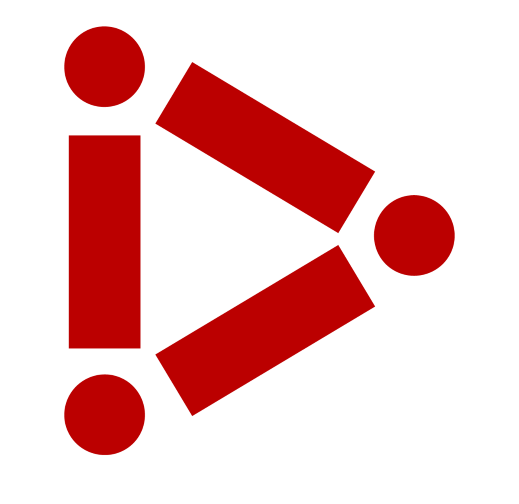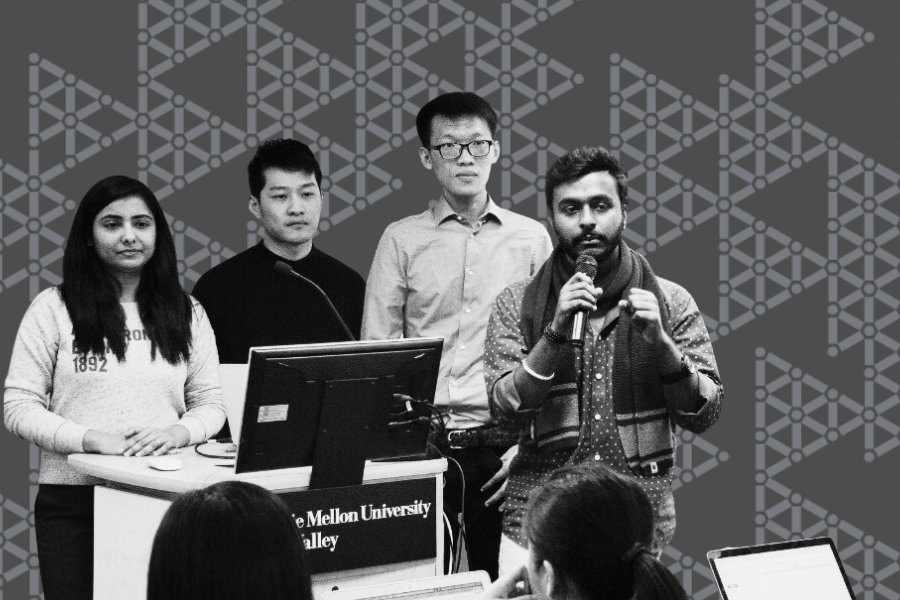
iii Community Celebrates National Entrepreneurship Month
Students and alumni entrepreneurs share their entrepreneurial journeys.
By Jessica Ignasky
[Note: This article was originally published in 2022. It was updated in November 2024 and re-published.]
From student entrepreneurs working on their own startups to alumni founders growing their businesses, the iii community shared advice for aspiring entrepreneurs, thoughtful insights into their own work, and learnings that have helped them on their journeys.
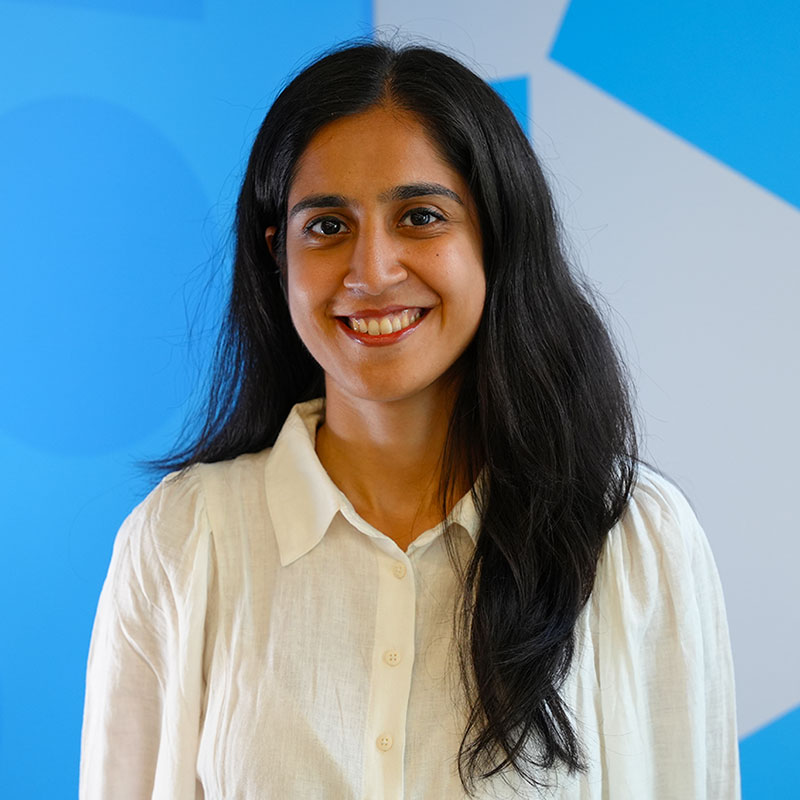 “Perseverance and persistence are crucial—showing up every day and staying committed to the vision makes all the difference.”
“Perseverance and persistence are crucial—showing up every day and staying committed to the vision makes all the difference.”
DR. SHUBHAA CHAWLA, MIIPS '25
Dr. Shubhaa Chawla (MIIPS ‘25) is a student in the Master of Integrated Innovation for Products and Services (MIIPS) program at the iii. While at Carnegie Mellon University, Shubhaa was accepted into the 2024-2026 cohort of James R. Swartz Entrepreneurial Fellows where she is currently working on her startup, Relayd.
iii: Share a few details about your startup.
Relayd revolutionizes nursing workflows by leveraging large language models and AI-driven insights.
It uses cross-modal documentation, structured handoffs, and efficient workflows to empower nurses and reduce their administrative burden, thereby improving patient care and making handoffs seamless.
iii: What is something you wish you knew before starting on your entrepreneurial journey?
I wish I had truly understood the power of a community. Building a strong support system of mentors, peers, and like-minded individuals can provide invaluable guidance and encouragement.
iii: What skills have helped you the most on your entrepreneurial journey?
As someone who has just embarked upon this adventure, I’ve found that perseverance and persistence are crucial—showing up every day and staying committed to the vision makes all the difference. Additionally, a willingness to learn and adapt has been invaluable, as every step brings new challenges and opportunities to grow.
iii: What excites you or inspires you the most about the current state of entrepreneurship?
What excites me the most is the opportunity to see our solution gain validation and traction in the real world. Our team is currently actively pursuing partnerships with hospitals, industry leaders, and technology innovators. This collaborative effort will help refine our solution and ensure that it effectively addresses real-world challenges.
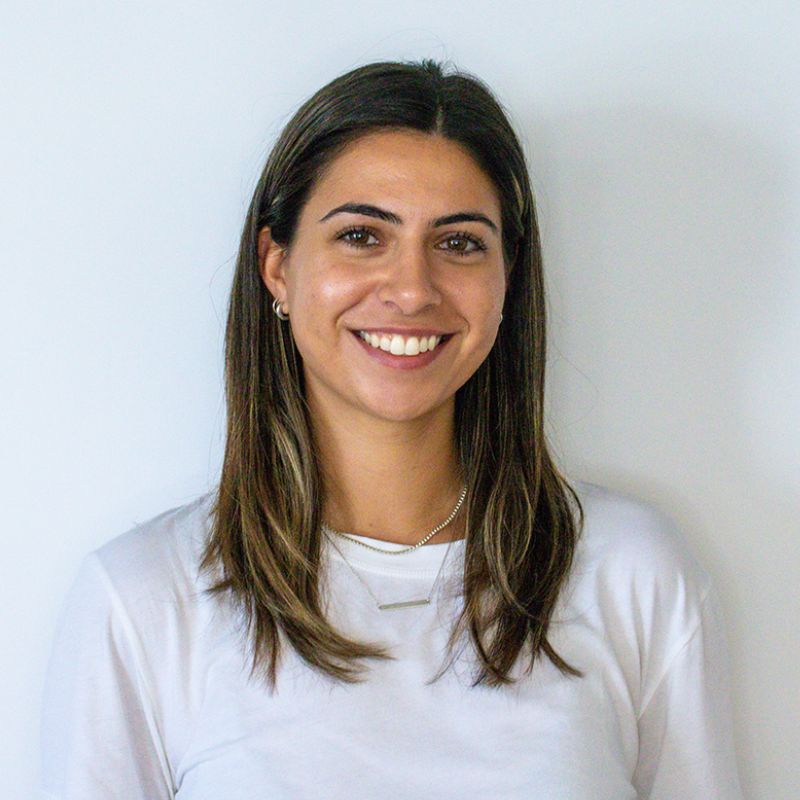 “People are more willing to help than you might think; especially those who have experienced or are currently navigating their own entrepreneurial journeys.”
“People are more willing to help than you might think; especially those who have experienced or are currently navigating their own entrepreneurial journeys.”
AMANDA MANGET, MIIPS '24
Amanda Manget (MIIPS ‘24) is a student in the Master of Integrated Innovation for Products and Services (MIIPS) program at the iii. While at Carnegie Mellon University, Amanda was accepted into the 2023-2025 cohort of James R. Swartz Entrepreneurial Fellows and launched her startup, Tandem.
iii: Share a few details about your startup.
Tandem is a mobile app designed specifically to help long-distance couples maintain and strengthen their connection. My co-founders, Scarlett Xie and Charlie Sun, and I started building this out of Adam Paulisick and Sean Ammirati's AI Venture Studio class, driven by our own experiences of the unique challenges in long-distance relationships.
When we couldn't find a solution that truly addressed the difficulties we faced—like maintaining communication, intimacy, and fun activities together—we created Tandem to fill that gap. Tandem makes it easier for couples to connect, find new activities, and grow together, even across miles (or kilometers).
iii: What is something you wish you knew before starting on your entrepreneurial journey?
I have two pieces of advice to share:
- Customer Discovery: Nearly 90% of startups fail, primarily due to a lack of market need (i.e. founders didn't do enough customer discovery). To deliver a valuable solution, it’s crucial to ensure you’re solving a real and sizeable problem.
- People Want to Help: People are more willing to help than you might think; especially those who have experienced or are currently navigating their own entrepreneurial journeys. CMU and Swartz are full of mentors that are willing to help - just ask!
iii: What skills have helped you the most on your entrepreneurial journey?
- User Insight Extraction: Users may not directly tell you what they want [insert classic Henry Ford quote], but there are effective tools and techniques to uncover their real needs. I highly recommend Francine Gemperle's User Research Class, Ellen Ayoob's IPD Methods class, Adam Paulisick's AI Venture Studio, and Dave Mawhinney's Marketing for Entrepreneurship class for building these skills.
- Resourcefulness: Leverage student discounts on software, mentors at CMU and Swartz, and organic marketing tools. I ran $0 marketing experiments on TikTok and Instagram to test what value of Tandem resonated most with users.
- Pitching: Pushing myself to pitch at Hack-a-Startup, in the AI Venture Studio class, Swartz Friday pitch days, and even David Goyette’s Acting for Business class has helped me build confidence and communicate effectively. Although I have room for improvement, I’m already more comfortable pitching than when I started at CMU.
iii: What excites you or inspires you the most about the current state of entrepreneurship?
- Solving Real Problems: Founders today are focused on ventures that tackle pressing global issues—like health, sustainability, and social connection. This shift toward purpose-driven entrepreneurship is inspiring as it redefines success by the impact on people and the planet, rather than just financial gains. The initial AI hype wave has begun to slow, pushing companies to demonstrate value beyond merely using AI.
- Accessibility for All: Technology and resources now make it easier than ever for anyone with a vision to create something impactful. With the rise of AI, digital tools, and no-code platforms, barriers to entry are low, enabling diverse backgrounds to innovate and build. There are now countless AI and no-code tools available, allowing founders to build and test ideas more efficiently than ever before.
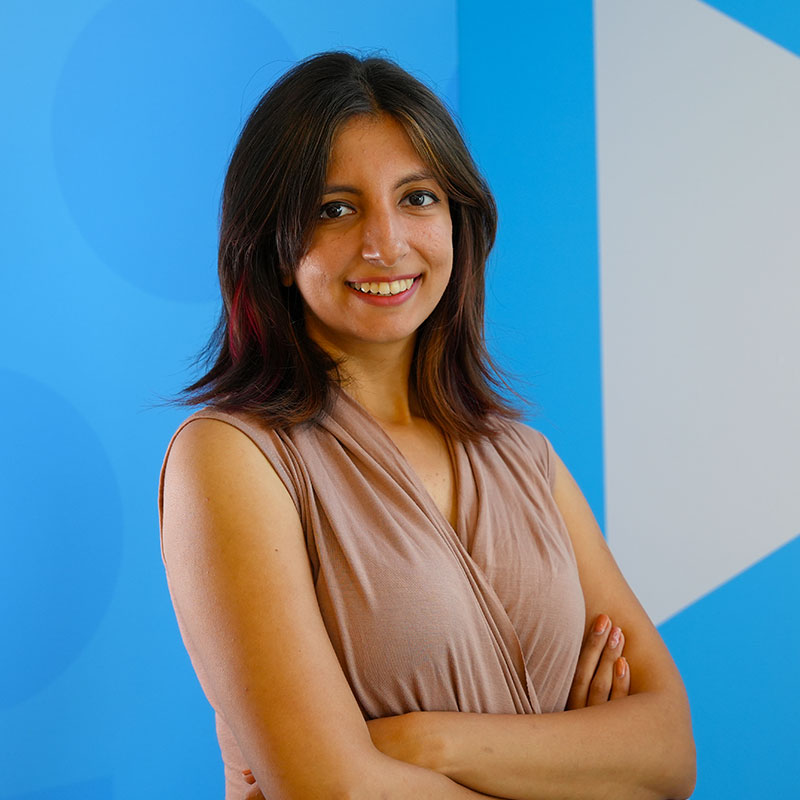 “It is very important to find the right team who believes in the idea as much as you. Be ready to face challenges every step of the way. The right attitude will take you a long way.”
“It is very important to find the right team who believes in the idea as much as you. Be ready to face challenges every step of the way. The right attitude will take you a long way.”
SAPNA ROHRA, MIIPS '25
Sapna Rohra (MIIPS ‘25) is a current student in the Master of Integrated Innovation for Products and Services (MIIPS) program at the iii. Sapna was recently accepted into the 2025-2026 cohort of James R. Swartz Entrepreneurial Fellows where she is currently working on an entrepreneurial venture.
iii: Share a few details about your startup.
I'm currently working on an idea (developed during the Hack-a-Startup Competition) that aims to connect fresh affordable homemade meal providers with busy individuals actively searching for healthier and personalized options through a subscription-based platform. It caters to individuals with limited time for meal preparation but a strong desire for nutritious and satisfying meals, while also empowering local cooks to monetize their culinary skills.
iii: What is something you wish you knew before starting on your entrepreneurial journey?
It is very important to find the right team who believes in the idea as much as you.
Be ready to face challenges every step of the way. The right attitude will take you a long way.
iii: What skills have helped you the most on your entrepreneurial journey?
Resilience, competitive spirit, collaboration, openness to feedback and discernment to identify what to act on.
iii: What excites you or inspires you the most about the current state of entrepreneurship?
The ecosystem is filled with like-minded, entrepreneurial individuals, making it easier to connect and collaborate. It’s inspiring to witness the passion and determination with which so many pursue their ideas and achieve remarkable outcomes.
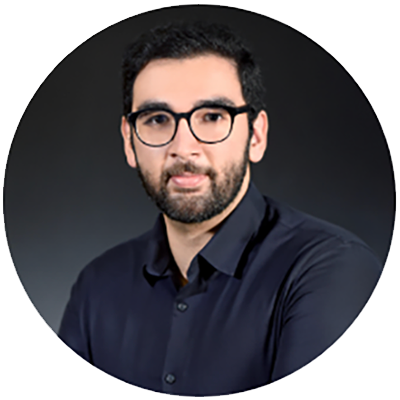 “Your passion and drive should never die down, even if things don’t work out. That drive will take you to the next thing.”
“Your passion and drive should never die down, even if things don’t work out. That drive will take you to the next thing.”
HASSAN AZMAT, MSTV '22
Hassan Azmat (MSTV ‘22) is a graduate of the Master of Science in Technology Ventures (MSTV) program at the iii. Now, he works as a Co-Founder of Aplá, an accounting tool for founders of startups. During his time at the iii, Hassan learned how to hone his intuition, inner drive, and passion for entrepreneurship to create projects and work on teams.
iii: What is something you wish you knew before starting on your entrepreneurial journey?
I wish I knew how to take it easy in the early stages of proving a concept. I realized I didn’t need to create an entire project to prove my concept – anything that can show an idea works is valid. I would tell myself not to waste so much time working on something that would be redone from scratch anyway if the idea proves to work.
iii: Do you have any advice for aspiring entrepreneurs?
Your passion and drive should never die down, even if things don’t work out. That drive will take you to your next thing. To quote Professor David Miller, “You marry the problem, not the solution.”
Don’t get hung up on a solution if it’s not working out – be ready to pivot!
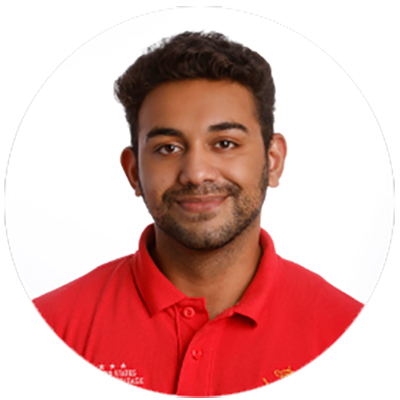 “If you have an idea and feel it’s not good enough, don’t worry – it most definitely is! Believe in yourself and leverage the resources around you; your peers, student clubs, and alumni.”
“If you have an idea and feel it’s not good enough, don’t worry – it most definitely is! Believe in yourself and leverage the resources around you; your peers, student clubs, and alumni.”
RISHABH BANGA, MSSM '22
Rishabh Banga (MSSM ‘22) is a graduate of the Master of Science Software Management (MSSM) program at the iii. Now, he works as the Technical Product Owner at Copart, a global leader in online car auctions. During his time in the MSSM program, Rishabh has learned about the importance of the technology adoption lifecycle, financial literacy, and organizational behavior.
iii: What is something you wish you knew before starting on your entrepreneurial journey?
You can never be fully prepared for being an entrepreneur. When I started my first venture, I began with the assumption that since I had all my boxes checked (a great co-founder and team who believed in the vision, a solution with a great market fit and trailblazing traction, etc.) the venture would be a success. However, the venture still failed. Part of the reason was us waiting for the perfect time for everything.
iii: Are there skills you’ve learned in the iii that have helped you on your entrepreneurial journey?
For me, the first major learning was related to reading Crossing the Chasm in Professor Stuart Evans’ Innovation and Entrepreneurship class. The chasm refers to the technology adoption lifecycle or the transition from the early market into the mainstream eye. Crossing the chasm means the opportunity for hyper-growth and market success.
Another meaningful learning was about context switching and leadership attitudes at 50,000 feet, 500 feet, and 5 feet as part of Professor Sheryl Root’s Organizational Behavior class. There were many more along the way as well (including basic financial and legal literacy), but these two were the ones that set me on my path to understanding the nuances of being an entrepreneur.
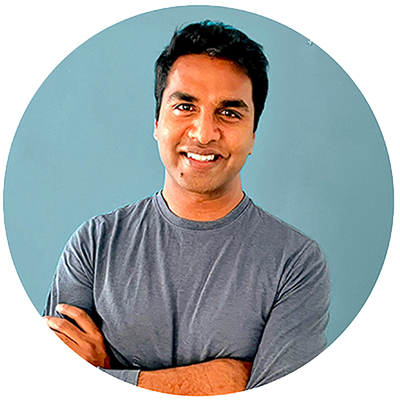 “Start somewhere instead of waiting for the right idea. Finding a good product market fit requires that you keep iterating and evolving and the original idea usually does not work out. It also requires not holding onto your product idea, but getting passionate about the problem area.”
“Start somewhere instead of waiting for the right idea. Finding a good product market fit requires that you keep iterating and evolving and the original idea usually does not work out. It also requires not holding onto your product idea, but getting passionate about the problem area.”
PRAKASH SOMASUNDARAM, MPD '06
Prakash Somasundaram (MPD ‘06) is a graduate of the Master of Product Development program (now known as the Master of Integrated Innovation for Products and Services (MIIPS) program) at the iii. After graduation, Prakash worked at large Fortune 500 companies like Amazon and Honeywell, designing and launching new products across industries including healthcare, supply chain, and online retail. With the foundational knowledge gained at Carnegie Mellon University about truly understanding customer needs and building delightful experiences and using his own experiences of scaling businesses at large organizations, Prakash embarked on his own entrepreneurial journey recently as the founder of Uba, a nutritional company.
iii: Share a few details about your startup,
I founded Uba with a mission to help people eat better. At Uba, we make simple tools that promote better nutrition habits to prevent chronic diseases such as obesity and diabetes and support healthier lifestyles.
The key reason for poor dietary habits in the United States has been attributed to inflated portion sizes, imbalanced nutrition, and consumption of highly processed foods. While there is plenty of guidance available on how to improve dietary habits, we found a lack of actionable tools to enable and enforce these habits on a daily basis.
We designed point-of-consumption dinnerware tools that provide visual reminders on ‘what’ and ‘how much’ to eat at every meal. These include simple porcelain plates with pre-calibrated sections for each food group to enable balanced meals, bowls with built-in measurements to control portion sizes, flatware that helps with eating smaller bites, and more. In addition, we have developed nutrition plans that our customers can follow as dietary guidance on a daily basis.
We are happy about our recent successes and milestones including reaching more than 20,000 customers in the United States as well as expanding our sales to Canada, Mexico, and the United Kingdom. We are also proud of ensuring that our products are environmentally conscious, designed, and packaged without plastics and still provide a delightful customer experience. We continue to iterate on new products based on our customer research and current challenges, managing potential supply chain disruptions, and controlling our cash flow to sustainably grow the business.
iii: If you could share advice with your younger self, what would you say?
My advice to my younger self would be to:
- Start somewhere instead of waiting for the right idea. Finding a good product market fit requires that you keep iterating and evolving and the original idea usually does not work out. It also requires not holding on to your product idea but getting passionate about the problem area.
- Find the simplest version of solving a problem. A product does not need to have high-tech features or complexity to impress consumers on the market. Complexity creates more paths to failure.
- Understand what you are really good at and focus on that as the business differentiator. Outsource all other functions that can bog you down.
iii: What are you working on now and what are you excited about in the future?
We are currently working on building more physical products that can help improve dietary habits both at home and on the go. We are also exploring services and software solutions that can provide our customers with ongoing guidance, help them track their daily intake, and connect with nutrition experts as needed. I am personally excited about expanding the Uba team as we grow our business and reach more customers globally.
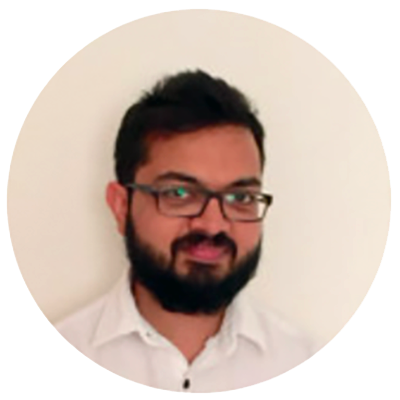 “There’s no right time to start up. You just have to believe in yourself and take the plunge.”
“There’s no right time to start up. You just have to believe in yourself and take the plunge.”
PEEYUSH GOYAL, MPD '14
Peeyush Goyal (MPD ‘14) is a graduate of the Master of Product Development program (now known as the Master of Integrated Innovation for Products and Services (MIIPS) program) at the iii. After graduation, Peeyush worked as a Product Manager at LeadGenius, Helpshift, and Quicksand Design Studio before beginning his own entrepreneurial journey as the Co-Founder of Salarybox, an employee management tool.
iii: Share a few details about your startup.
At Salarybox, we are building a payroll app for Asia, starting with India. When we began our entrepreneurial journey about two years ago, we were shunned by several investors because they didn’t believe SMBs in India would pay for products. I’m extremely excited to share that our strong focus on revenue from day 0 has helped us successfully garner paying customers, helped us raise $4 million in seed funding, and shown us the path to profitability. However, building for the next billion users in India has not been an easy journey. It’s been extremely challenging to strike the right balance between innovation and relentless execution. We’ve had to learn how to set aside preconceived notions and beliefs about this audience, put each and every assumption under the microscopic lens, and unlearn what we thought was the ‘right way’ to build products.
iii: What does a typical workday look like for you?
I don’t think there is such a thing as a typical workday. Every day is different. However, broadly speaking, my day is spread across four core activities:
- Hiring: finding the right folks who share similar values.
- Building: this varies anywhere from hands-on execution to delegating work to build systems that help teams work autonomously.
- Measuring: keeping a finger on the pulse of the business’ health and imbibing numbers day in and day out.
- Having fun: I love the team at Salarybox, spending time with them is always reinvigorating.
iii: What are you working on now, and what are you excited about in the future?
At Salarybox, we are not building just a payroll app. Under the hood, we are building an engine to power financial services for 300 million+ blue-collar workers in India. We have embarked on this journey this month and I am super stoked to see how that will change India’s landscape in the coming years.
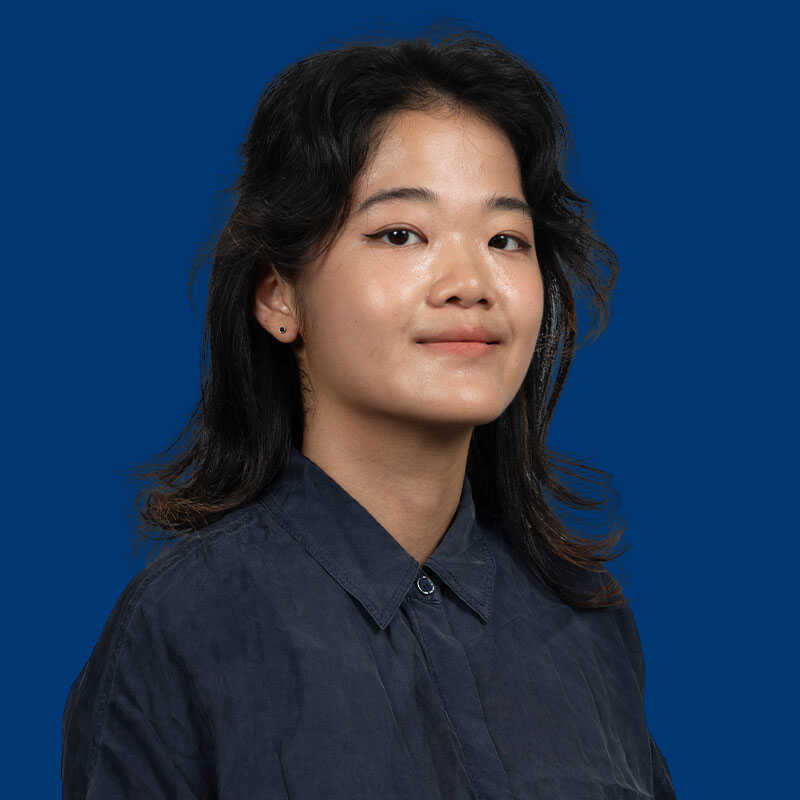 “Staying humble is key—regardless of past experience, building a startup always means starting from square one.”
“Staying humble is key—regardless of past experience, building a startup always means starting from square one.”
WENDI YIN, MIIPS '24
Wendi Yin (MIIPS ‘24) is a graduate of the Master of Integrated Innovation for Products and Services (MIIPS) program at the iii. Prior to graduation, Wendi started her entrepreneurship journey working as the Founder of Tomo Cafe, where she now works full time.
iii: Share a few details about your startup.
I am working as the Founder of Tomo Cafe, a gamified, anime-inspired platform designed to help Gen Z build healthy habits, tackle procrastination, and manage mental wellness.
iii: What is something you wish you knew before starting your entrepreneurship journey?
I have three pieces of advice:
- Consistently making good decisions is challenging. Most of the time, you’ll make decent choices, and it takes persistent effort and experimentation to uncover the truly impactful ones.
- Staying humble is key—regardless of past experience, building a startup always means starting from square one.
- Most founders are willing to support newcomers on their journey - as long as you reach out.
iii: What skills have helped you the most on your entrepreneurial journey?
Adaptability and resilience have been invaluable, as the startup journey is filled with unexpected turns. Additionally, strong communication skills have helped me articulate our vision to investors, team members, and users, while a background in marketing has been essential in driving engagement and building our user base.
iii: What excites you or inspires you the most about the current state of entrepreneurship?
I’m inspired by the rapid evolution of technology, especially in AI and digital engagement, which has created unprecedented opportunities to solve real-world problems in creative ways. The current entrepreneurial landscape is filled with the potential to positively impact lives, especially in areas like mental health and productivity, and being part of this wave of meaningful innovation is incredibly exciting.
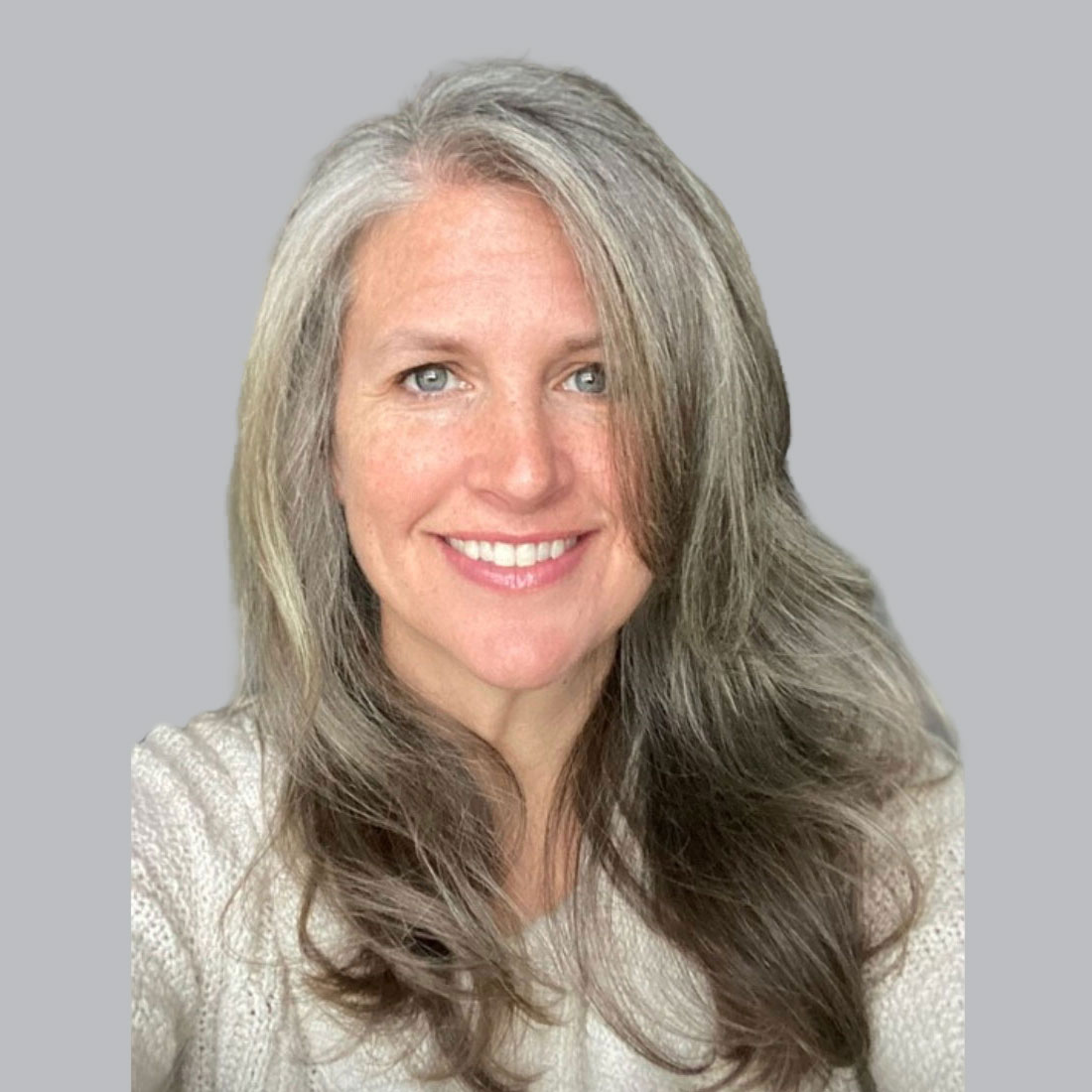 “Understanding your vulnerabilities and your weaknesses can help you move forward. It's also about understanding how you want to grow in the process so that regardless of outcome you can walk away with something valuable.”
“Understanding your vulnerabilities and your weaknesses can help you move forward. It's also about understanding how you want to grow in the process so that regardless of outcome you can walk away with something valuable.”
JULIE WAGNER, MIIPS ONLINE '24
Julie Wanger (MIIPS Online ‘24) is a graduate of the Master of Integrated Innovation for Products and Services Online program. While in the program, she began working on her startup, Dottie, a wearable smart assistant for children with type 1 diabetes.
iii: Share a few details about your startup.
It takes eleven hours a week to manage and monitor type 1 diabetes (T1D). That’s over 90 minutes lost to the disease. This see-saw of balancing highs and lows has a huge impact on the quality of everyday life.
At Dottie, we’re connecting the dots between activity and insulin sensitivity to provide precision analytics for tighter control, which means less time managing the disease and more time enjoying life.
iii: What is something you wish you knew before starting your entrepreneurship journey?
I expected uncertainty, but the distractions have been sneaky. They can be shiny and seemingly stable, like job openings that pop-up on LinkedIn, or obligatory tasks, like paying bills, that can quickly chip away at productivity if you don't guard your time.
Understanding your vulnerabilities (ie; not having a steady income) and your weaknesses (I tend to procrastinate on the fuzzy big work in favor of tangible to-dos) can help you move forward. It's also about understanding how you want to grow in the process so that regardless of outcome you can walk away with something valuable.
iii: What skills have helped you the most on your entrepreneurial journey?
Given the personal nature of the space and product I'm working on, stubborn persistence has served me well, though it might be less of a skill and more of a mindset. It means knowing when to keep your head-up and focusing on the long-term vision, and keeping your head down and digging in. The ability to switch between the two is the start of my entrepreneurial swiss army knife.
iii: What excites you or inspires you the most about the current state of entrepreneurship?
As I stumble along, I've been lucky to come across entrepreneurs and further along in their journey who offer inspiration and lessons, but it can be lonely and confusing with a lack of relatable guideposts for nontraditional entrepreneurs like myself.
I hope to widen that path for others and have started writing about my entrepreneurial experience with the hope of sharing soon.
